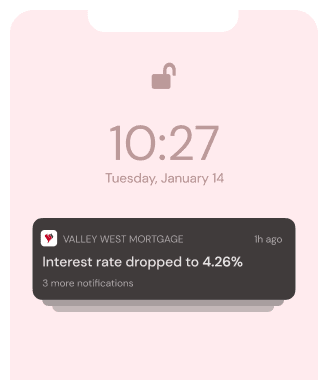There’s no doubt that one of the most important and often daunting steps in the homebuying process is qualifying for a mortgage. By understanding what lenders look for - the four C’s of credit - you can set yourself up for success and a smooth-sailing mortgage underwriting process. So, if you’re currently renting an apartment in San Francisco, looking at homes for sale in Austin, TX, or checking out another city where your money can go further, see how the four C’s of credit impacts the size of mortgage you can qualify for.
What are the four C’s of credit?
- Credit: Do you have a track record of consistently making payments on time?
- Capacity: Are you able to pay back the loan?
- Capital: Do you have assets, cash reserves, or other funds?
- Collateral: What property or possessions can you pledge as security against the loan?
While different lenders may have their own specific qualifications for securing a home loan, there are four main factors that they’ll review and analyze during the mortgage underwriting process. These main factors are credit, capacity, capital, and collateral.
Let’s dive deeper into each of the four C’s of credit.
1) Credit
When applying for a mortgage, lenders will review your credit history and credit score to analyze your record of paying bills. They want to understand your overall history as a borrower and see how you manage your other debts and monthly payments.
Your credit score can be a make or break factor for a mortgage loan approval. Oftentimes, there will be minimum credit score requirements for a mortgage, and your credit score may determine the size of the loan amount you’re qualified for in addition to the interest rate on the loan.
2) Capacity
Capacity refers to a potential borrower’s ability to repay the loan. A lender will look at your income, savings, employment status and history, and any other financial obligations (such as a car loan, student loans, etc.) to assess your debt-to-income ratio (DTI) and determine if you qualify for the mortgage loan. Typically, a loan applicant with a lower DTI is viewed as lower risk, so the lower DTI, the better.
When it comes to the four C's of credit, capacity is arguably the most important and confusing areas of loan qualification. "Many borrowers get confused when it comes to the different types and sources of income a lender uses to determine their ability to repay," says Vatche Saatdjian, President and CEO of Valley West Mortgage. “These include hourly, salary, bonuses, commissioned, and self-employed. All sources of income are calculated differently with regard to qualification and depending on your current situation, can be much more or a lot less than what you might think they are. Discussing your income situation with a licensed mortgage professional is the best way to ensure success in getting approved for a home loan.”
To verify your income, lenders will review your past W2s, income tax returns, and current income statements. You can expect your income to be evaluated based on:
- The type and source of income
- The amount of time the income has been received
- The future expectancy and stability of the income
Then, lenders will review your monthly recurring debt payments, such as:
- Auto loans
- Student loans
- Personal loans
- Credit card payments or line of credit payments
- Child or spousal support payments
- Other debts and obligations, such as medical bills
This is particularly important these days with surging inflation increasing the cost of just about everything, from a dozen eggs to that new furniture set you’ve been eyeing. “Before you sign on the dotted line, think about your total budget,” Behm says. “Always leave room for increased costs such as real estate taxes, utility bills, and credit card and car payments.”
Behm says new homebuyers often don’t consider unexpected costs that can quickly blow up their budget. For instance, more space likely means higher heating and cooling costs or the home you purchased could be re-assessed by the local municipality, triggering an increase in real estate taxes. “The best approach is to go with a mortgage payment you would feel comfortable with if all your other payments were to increase,” says Behm.
3) Capital
In addition to your income, lenders look to see how much money you have in savings and in investment accounts that can be converted to cash, such as stocks, 401(k) account(s), or Individual Retirement Accounts (known as IRAs) - which are referred to as cash reserves. Lenders want to see that you have funds beyond your gross monthly income for your mortgage payment as well as for your down payment and closing costs.
Beyond cash reserves, here are a few other sources of capital lenders may take into consideration:
- Down payment assistance programs
- Gifts from a relative
- Grants
“When going through the mortgage underwriting process, it’s important to keep in mind that liquidity is king. Having cash reserves in readily available accounts and limiting the movement of that money will help to ensure the most efficient experience,” says Nate Condon from Walkner Condon Financial Advisors.
“For example, balances in bank or credit union accounts can be easily verified and tracked using basic monthly statements. Bear in mind that any movement of money during the timeframe of the underwriting process, including a couple of months prior to it, will likely involve significant tracking. More moves mean more tracking, which can mean a lengthier process,” continues Condon.
4) Collateral
Collateral refers to the borrower's assets that can be used as security against the loan. When you're applying for a mortgage, the collateral is the home. If a borrower defaults on their mortgage loan, the mortgage company or bank can take possession of the home.
Collateral is often measured by its value and perceived ease of liquidation. When a homebuyer receives financing through a bank or mortgage lender, they will order a home appraisal to determine the value of the home.
Originally published on Redfin




